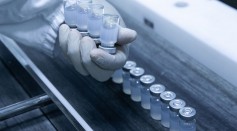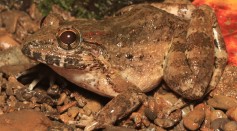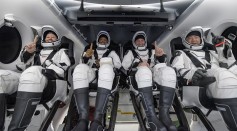Gerry Roberts
“Magic” Material Converted Into Nifty Electronic Devices. Know the Secret Here

WHO Declares China's Sinovac Effective, Yet Questions Remain
Studies on Protein Changes in Aging Kidneys Give Hope for Better Treatments

Freaky Philippines Fanged Frog is Actually a New Species, Genetic Tests Shows
Potential Gene Therapy for Alzheimer's Disease Prevents Memory Loss, Strengthens Learning Abilities

Dunbar’s Theory Limiting Humans with 150 Friends, Stable Relationships Questioned
Have You Seen the Giant Australian Wood Moth? It’s Here and It’s Huge!
Scientists Still Waiting for Next Hums of Gravitational Waves from Neutron Stars
Smelling DNA Changes to Prevent Diseases? You Can with the “Chemical Nose”!
Inner Workings of Potent Antibiotic of “Last Resort” That Annihilates Bacteria Revealed
Powerful Online Tool Helps Identify Molecules that Could Fight COVID-19
Researchers Use Nanoribbons to Push Graphene in Enhancing Tech Innovations Further

NASA SpaceX Crew-1 Astronauts to Meet Media Online After Historic Mission
New Genetically Reengineered Microbe to Turn Waste into Precious Chemicals
Most Popular

How Technology Is Changing the Real Estate Industry?

How a Plant-Based Diet Can Protect Against Breast Cancer: Insights from Nutrition Research

Study Reveals High Turnover in Scientific Research Careers: What This Means for Future Scientists

Why It's So Difficult to Lose Weight: The Biological Explanation Behind Obesity





